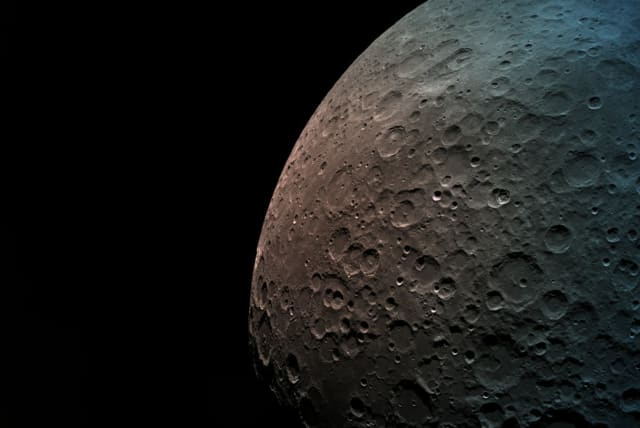Rolls-Royce to build nuclear reactor for the Moon with UK funding

The Rolls-Royce micro-nuclear reactor is seen as a promising method of providing a power source for a long-term human presence on the Moon.
The UK Space Agency is backing a plan by British car and engine manufacturing firm Rolls-Royce to build a nuclear reactor for the Moon.
The program will receive funds to the sum of £2.9 million from the UK Space Agency, a major increase from the £249,000 study funded by the agency in 2022.
It is hoped that Rolls-Royce will have the reactor ready to send to the Moon by 2029.
Nuclear reactors on the Moon? Why?
The idea to make a nuclear power source for the Moon is far from outlandish.
Nations all over the world, spearheaded by NASA's Artemis missions, seek to return humanity to the Moon for a more prolonged stay than the few brief visits during the Apollo missions in the late 1960s and 1970s.
The first steps for this have already been taken, with NASA's Artemis I Mission having successfully returned from a trip around the Moon and the Artemis III Mission set to put human boots on the lunar surface for the first time in decades.
This is only the start of what is hoped to be a more long-term human presence on the Moon, which would include humans living and working on the lunar surface. This has the potential to vastly transform human progress, with space having been referred to by some as the "ultimate laboratory."
This requires a number of the necessary equipment to be made in advance, such as lunar habitats, vehicles, food sources, communications systems and so on. But in order for all of those to function, we also need a source of power.
But why nuclear power?
For one thing, it's lighter. Other power systems require larger and heavier equipment. But a nuclear micro-reactor is smaller, lighter and would need nothing but some environmental factors like sunlight to work safely.
Not only that, but provided nothing goes wrong, nuclear energy is very clean and safe. This could have major implications for future use in other sectors, such as commercial space travel.
But it is still complex, and a lot of research and work is needed to get this project off the ground. Specifically, the three key features of the reactor: The fuel to make heat, the way to transfer the heat and the technology to convert the heat into power.
But Rolls-Royce is only one of the companies being backed by the UK Space Agency to help develop technology for future human habitation of the Moon.
The agency announced £51 million in funding for technology in line with the European Space Agency's (ESA) plan to have satellites orbiting the Moon to aid in communication and navigation.
"The new tranche of funding from the UK Space Agency means so much for the Rolls-Royce Micro-Reactor Programme," Rolls-Royce future programs director Abi Clayton said.
"We're proud to work collaboratively with the UK Space Agency and the many UK academic institutions to showcase the best of UK innovation and knowledge in space. This funding will bring us further down the road in making the Micro-Reactor a reality, with the technology bringing immense benefits for both space and Earth. The technology will deliver the capability to support commercial and defense use cases alongside providing a solution to decarbonize industry and provide clean, safe and reliable energy."
"We are backing technology and capabilities to support ambitious space exploration missions and boost sector growth across the UK," said UK Space Agency head Dr. Paul Bate.
"Developing space nuclear power offers a unique chance to support innovative technologies and grow our nuclear, science and space engineering skills base. This innovative research by Rolls-Royce could lay the groundwork for powering continuous human presence on the Moon, while enhancing the wider UK space sector, creating jobs and generating further investment."
Jerusalem Post Store
`; document.getElementById("linkPremium").innerHTML = cont; var divWithLink = document.getElementById("premium-link"); if (divWithLink !== null && divWithLink !== 'undefined') { divWithLink.style.border = "solid 1px #cb0f3e"; divWithLink.style.textAlign = "center"; divWithLink.style.marginBottom = "15px"; divWithLink.style.marginTop = "15px"; divWithLink.style.width = "100%"; divWithLink.style.backgroundColor = "#122952"; divWithLink.style.color = "#ffffff"; divWithLink.style.lineHeight = "1.5"; } } (function (v, i) { });


